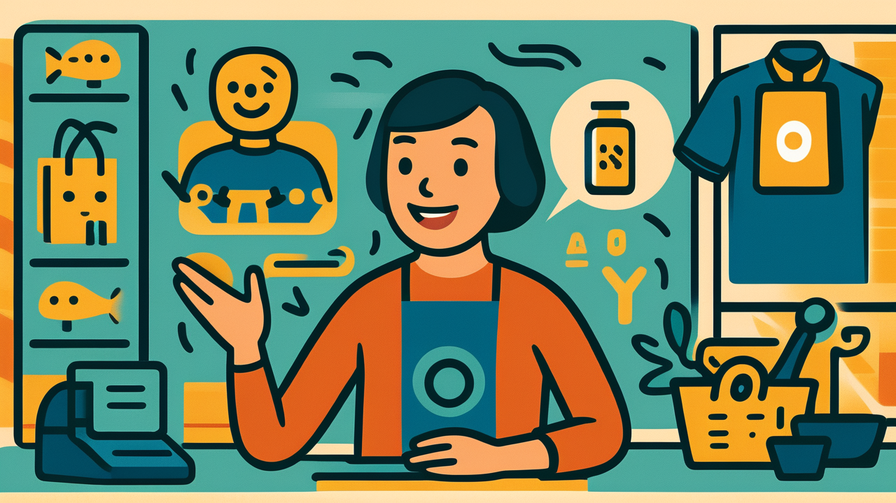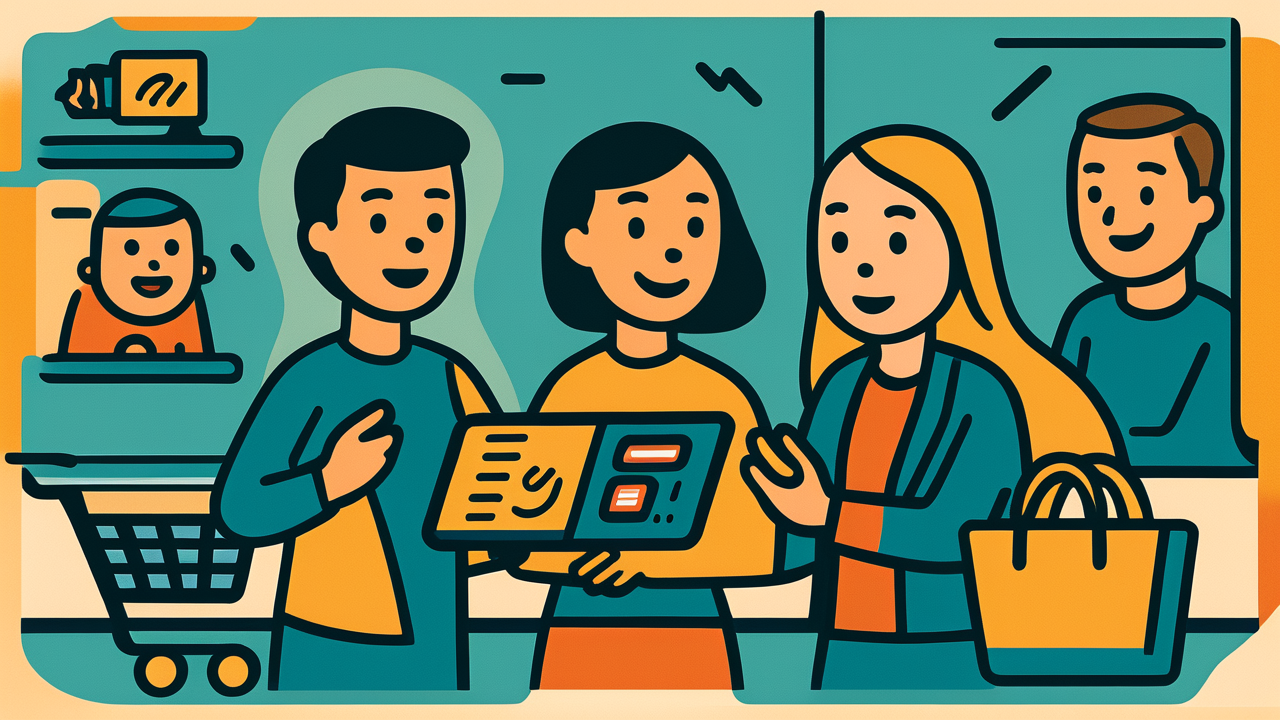[Disclaimer] This article is reconstructed based on information from external sources. Please verify the original source before referring to this content.
News Summary
The following content was published online. A translated summary is presented below. See the source for details.
Consumer shopping is experiencing its biggest transformation since online shopping began, driven by artificial intelligence adoption. According to Salesforce’s Connected Shoppers Report, 39% of consumers are already using AI for product discovery, with over half of Gen Z leading this trend. A Capgemini survey found that nearly 60% of consumers are replacing traditional search engines with AI tools like ChatGPT for product recommendations, with two-thirds of millennials and Gen Z making this shift. This change requires retailers to fundamentally rethink their approach—moving from traditional SEO keyword strategies to solution-oriented content that AI systems can understand and recommend. Caila Schwartz from Salesforce notes that AI-driven traffic converts at higher rates but requires different optimization strategies. Retailers must now create rich, contextual product descriptions that anticipate what problems shoppers are trying to solve, not just what they’re searching for. Luxury retailer Saks Fifth Avenue is already adapting by using AI and first-party data to create highly personalized shopping experiences across all touchpoints.
Source: Salesforce News
Our Commentary
Background and Context

Remember the last time you searched for something online? Maybe you typed “cool sneakers” into Google or scrolled through Instagram for outfit ideas. Well, that’s already becoming old-fashioned. AI is revolutionizing how we discover and buy products online, and it’s happening faster than anyone expected.
Instead of typing keywords into search boxes, people are now having conversations with AI assistants like ChatGPT to find what they want. It’s like having a super-smart shopping buddy who knows everything about every product and can give you personalized recommendations instantly. Gen Z is leading this change, with more than half already using AI to find products.
Expert Analysis
This shift is huge for both shoppers and stores. Think about how different these approaches are:
Traditional Search: You type “waterproof hiking boots size 9” and get a list of results based on those exact words.
AI Discovery: You tell an AI, “I’m going camping in the rain next month and need something to keep my feet dry,” and it understands your whole situation to recommend the perfect boots.
The challenge for retailers is that they’ve spent years optimizing for Google searches with specific keywords. Now they need to create content that helps AI understand not just what they’re selling, but what problems their products solve. It’s like the difference between labeling a medicine cabinet and explaining what each medicine actually does for you.
Additional Data and Fact Reinforcement
The numbers show just how fast this change is happening:
• 39% of all consumers already use AI for shopping
• Over 50% of Gen Z are AI shopping pioneers
• Nearly 60% of consumers are replacing Google with AI tools
• 66% of millennials and Gen Z prefer AI recommendations
What’s really interesting is that when people find products through AI, they’re more likely to buy them. Caila Schwartz from Salesforce explains that while AI shopping sessions are shorter, the conversion rates (people actually buying) are much higher because the AI is better at matching people with exactly what they need.
Related News
This trend connects to the broader AI revolution we’re seeing everywhere. Just as Agentforce is changing customer service and NeMo-RL is teaching AI to solve math problems, shopping AI is getting smarter at understanding what we want before we even know how to ask for it.
Major retailers are already adapting. Saks Fifth Avenue, the luxury department store, is using AI to create super-personalized shopping experiences. Amazon has been experimenting with AI shopping assistants, and even smaller online stores are updating their product descriptions to be more AI-friendly. This is creating a competitive advantage for early adopters who understand how to “speak AI’s language.”
Summary

We’re witnessing the biggest change in shopping behavior since e-commerce began, with AI becoming the new way people discover and buy products. For young shoppers especially, asking an AI for recommendations is becoming as natural as asking a friend.
This shift means retailers need to completely rethink how they present products online. Instead of stuffing pages with keywords for Google, they need to create rich, helpful content that explains what problems their products solve. For shoppers, this means getting better, more personalized recommendations. For students thinking about careers in business or technology, understanding this AI-driven shopping revolution could open doors to exciting opportunities in the rapidly evolving retail landscape.
Public Reaction
Consumer response has been mixed but trending positive. Many Gen Z shoppers love the convenience and accuracy of AI recommendations, saying it saves time and helps them discover products they wouldn’t have found otherwise. Some older consumers express concerns about privacy and miss the “browsing” experience of traditional shopping. Retailers report that early adopters of AI-friendly content strategies are seeing significant increases in sales, while those slow to adapt are losing market share to more tech-savvy competitors.
Frequently Asked Questions
Q: How is AI shopping different from regular online shopping?
A: Instead of searching with keywords, you describe what you need in natural language, and AI understands context to give personalized recommendations—like talking to a knowledgeable salesperson.
Q: Is this only for tech-savvy people?
A: Not at all! AI shopping is designed to be easier than traditional searching. If you can text or talk, you can use AI shopping tools.
Q: What does this mean for the future of shopping?
A: Shopping will become more conversational and personalized. AI will understand your style, budget, and needs to suggest exactly what you’re looking for, making shopping faster and more enjoyable.


